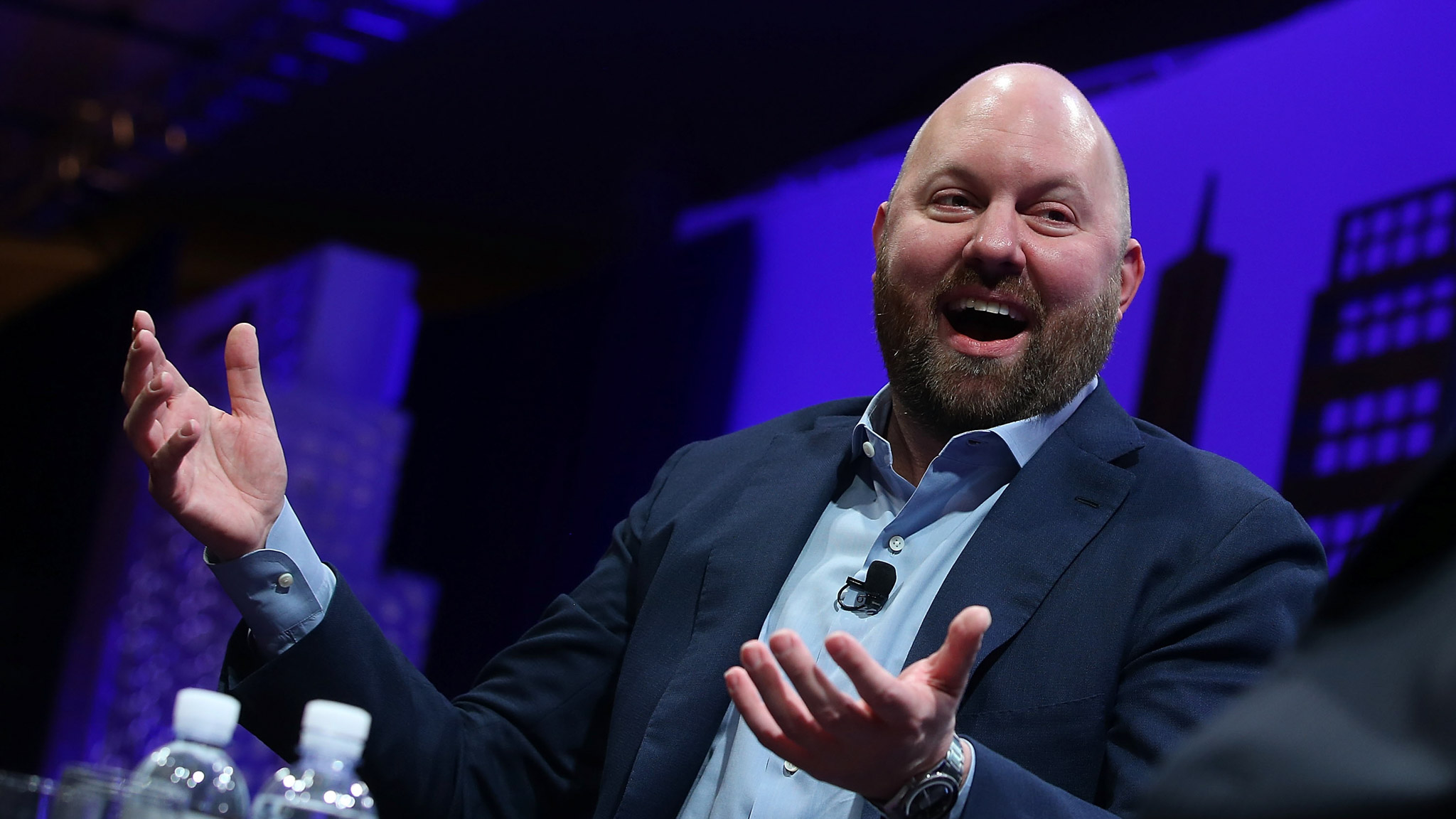Humanity expanding to a population of more than 50 billion people and settling on other planets? Technology as the panacea to all of society’s major problems? Artificial intelligence as a modern-day form of alchemy?
These are among the musings laid out by billionaire venture capitalist Marc Andreessen in a rambling 5,200-word post published Monday titled “The Techno-Optimist Manifesto.”
In his reading of history, technology is the savior of humanity and holds the potential for “a far superior way of living.” In Andreessen’s manifesto, technology is fetishized as “liberatory of the human soul.”
“We believe in the romance of technology, of industry. The eros of the train, the car, the electric light, the skyscraper. And the microchip, the neural network, the rocket, the split atom,” he writes. “We are not victims, we are conquerors.”
The manifesto itself begins with an epigraph from Southern Gothic author Walker Percy, but Andreessen’s style is a bit more like LinkedIn-style “bro-etry” expanded to the length of a Substack newsletter.
Here are some of the main takeaways:
A capitalist market economy? As opposed to the “doom loop” of central market planning seen in controlled communist economies, “markets are an upward spiral.”
Universal basic income? Bad, as it turns people into “zoo animals to be farmed by the state.”
Artificial intelligence? Andreessen calls it a “universal problem solver” and writes that “deaths that were preventable by the AI that was prevented from existing is a form of murder.”
Nuclear energy? Good and more investment should be made in the “energy silver bullet” of nuclear fusion.
Communism? Lol.
Who’s ‘the Enemy’?
Under a heading titled “The Enemy,” Andreessen describes a “mass demoralization campaign” against belief in technology-enabled progress. Among his targets are “social responsibility,” “existential risk,” “tech ethics” and “stakeholder capitalism,” which he writes are based on “zombie ideas.”
“Our enemy is the ivory tower, the know-it-all credentialed expert worldview, indulging in abstract theories, luxury beliefs, social engineering, disconnected from the real world, delusional, unelected, and unaccountable—playing God with everyone else’s lives, with total insulation from the consequences,” Andreessen writes without much of a hint of irony.
He also sets his sights against “nihilistic” de-growth efforts and political ideologies such as statism, authoritarianism and collectivism and forces such as bureaucracy, gerontocracy and monopolies. It should be noted that Andreessen sits on the board of Meta, which is currently being sued by the federal government for alleged monopolistic practices.
“We believe there is no conflict between capitalist profits and a social welfare system that protects the vulnerable,” Andreessen writes. The term “abundance”—which has been an increasingly popular buzzword in local politics—is used more than a dozen times in the manifesto.
More abundance of technology, material goods and energy, the thinking goes, would reduce prices and result in an “upward explosion” in quality of life.
Degrowth in My Backyard?
Of course, the idea of abundance is easier to think about in the abstract. Last year, Andreessen and his wife, Laura Arrillaga-Andreessen, received criticism after denouncing a plan to build 130 apartments near their home in Atherton.
“They will massively decrease our home values, the quality of life of ourselves and our neighbors and immensely increase the noise pollution and traffic,” the couple wrote in a submitted public comment.
The main themes of Andreessen’s manifesto track closely with an ideology that has rapidly gained traction among the Silicon Valley set known as “effective accelerationism.”
In short, the idea behind effective accelerationism is that technology and capitalism are positive forces that should be accelerated to help transform society for the benefit of humanity. It’s no coincidence that the philosophy is taking off as artificial intelligence grows in influence.
Proponents of the idea, which include Andreessen, Y Combinator CEO Garry Tan and “pharma bro” Martin Shkreli, often list “e/acc” in their Twitter bios or usernames in a show of public allegiance to the ideology.
The post itself ends with a list of names that Andreessen terms his “Patron Saints of Techno-Optimism,” which perhaps unsurprisingly starts with the three anonymous Twitter accounts credited with founding the effective accelerationist movement.
The 56 members of the list range from a number of libertarian-leaning thinkers, economists, philosophers and futurists like Ray Kurzweil, Friedrich Nietzsche and Milton Friedman.
Five women were also listed, including macroeconomist Dambisa Moyo, libertarian writer Isabel Paterson and computing pioneer Ada Lovelace. Ayn Rand did not make the list, although John Galt, the fictional protagonist in her novel Atlas Shrugged, did.
